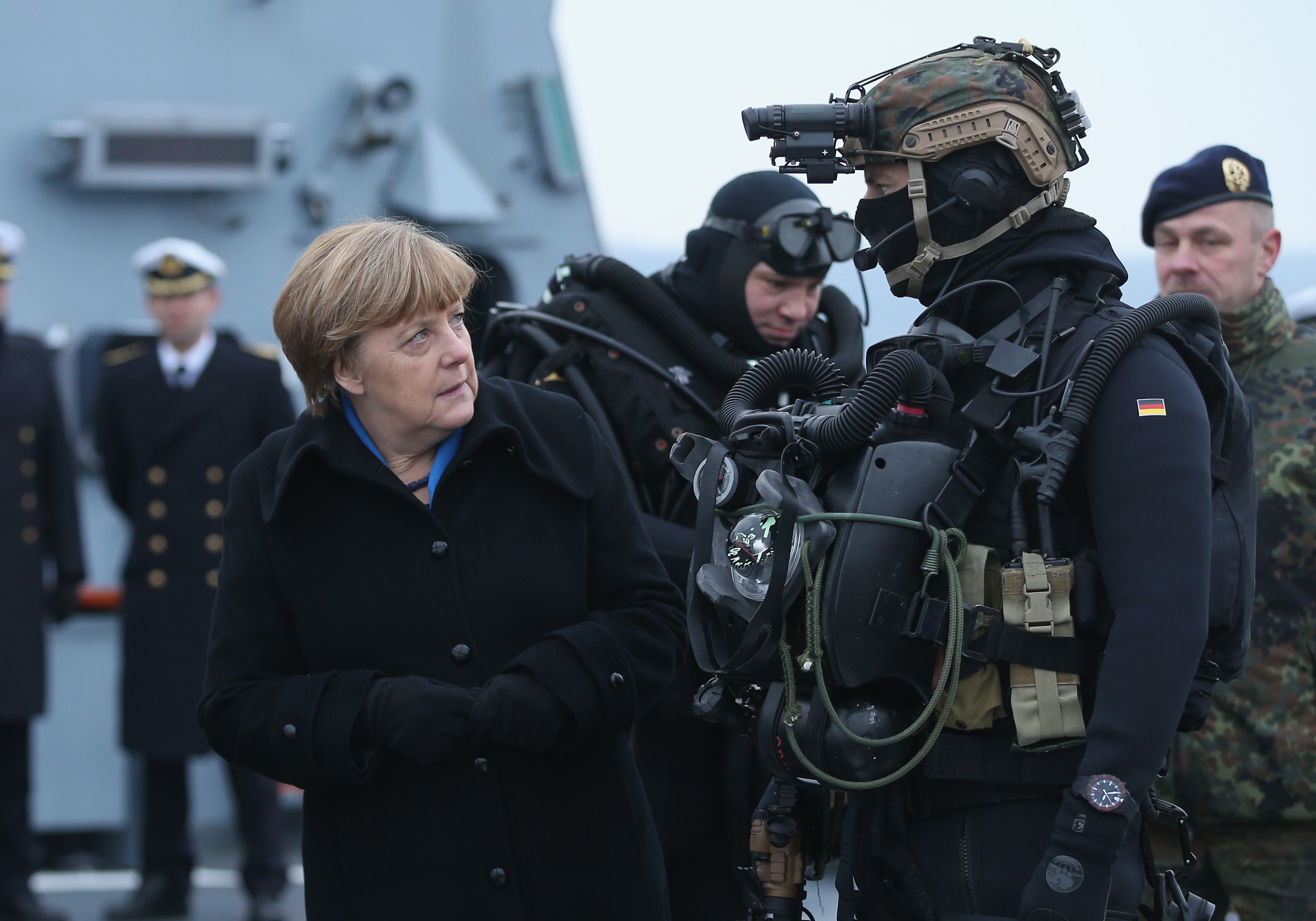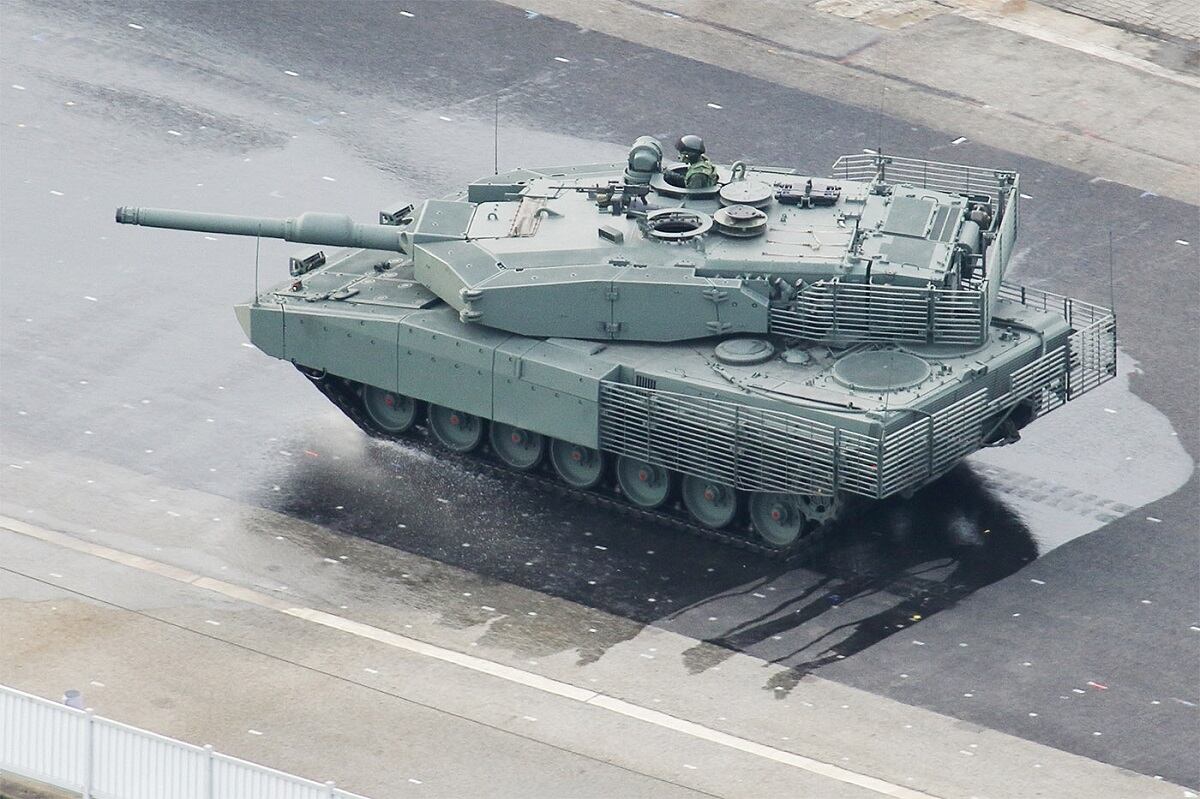COLOGNE, Germany — A diplomatic kerfuffle with France and the United Kingdom over exports of jointly developed weapons is forcing Germany to rethink its restrictive stance.
A draft memorandum between Paris and Berlin, which started making the rounds in German defense policy circles last week, is poised to become a key vehicle toward that end. Initially described in media reports as a near-complete concession to France’s export-oriented defense industry, the document’s finer points — and shortcomings, depending on who is asked — are beginning to come into focus.
The short text will become an annex to the so-called Aachen Treaty, signed in January by French President Emmanuel Macron and German Chancellor Angela Merkel. German government officials stress that negotiations over details are ongoing, but the broader objectives are these: For one, the two countries put in place a policy for their two major joint programs, a new tank and a new fighter aircraft, that leans toward export approvals by each partner, while recognizing a veto option only when one party’s “direct interests or national security are compromised.”
In addition, it sets up a new rule that takes effect when one country’s vendors have contributed only a relatively small share in a larger weapon program. In that situation, the respective government effectively forfeits its right to block the overall system’s export.
RELATED

Such has been the case with German components in the Meteor missile, for example, which France and others are reportedly blocked from transferring to Saudi Arabia.
Berlin placed an export embargo on Saudi Arabia last fall, after the death of Jamal Khashoggi, a journalist and known critic of the regime. It’s alleged the crown prince of Saudi Arabia was involved in Khoshoggi’s death. The embargo came on top of Germany’s reluctance to transfer arms to any party involved in the Yemen war, a key pledge holding together the governing coalition of the Christian Democratic Union and the Social Democrats here.
The British, meanwhile, have demanded Germany exempt multinational programs like the Eurofighter from the blockade. “I am very concerned about the impact of the German government’s decision on the British and European defense industry and the consequences for Europe’s ability to fulfill its NATO commitments,” British Foreign Secretary Jeremy Hunt wrote to his German counterpart Heiko Maas earlier this month, according to a letter first reported by Der Spiegel.
Maas rebuffed his colleague last week, however, saying at a joint news conference that his government would uphold the embargo, contingent on the progress of Yemen peace talks.
Saudi Arabia had the world’s third-largest defense budget in 2018, at $83 billion, following only top spenders the United States and China, according to a report released earlier this month by the London-based International Institute for Strategic Studies.
RELATED

Social Democrats on Monday announced they would push to extend the arms embargo for Saudi Arabia, which also affects licenses already granted by the government. “We will push for an extension of the moratorium past March 9 because the reasons for instituting it have not changed,” the Social Democratic party’s deputy Rolf Mützenich wrote in the party newspaper Vorwärts.
In addition, he argued, that fact that Germany’s European allies have less restrictive export guidelines should not be taken as a forcing function for the government here to strive for the same.
The stance has alarmed some industry executives, with Airbus CEO Tom Enders telling Reuters on Monday that the Social Democrats’ “view on foreign and security policy is totally inconsistent, torpedoes Franco-German defense cooperation and isolates Germany in Europe.”
Matthias Wachter, a defense analyst with the German industry association BDI, told Defense News the German government’s handling of the situation “leaves everyone unsatisfied,” even if companies are sympathetic to human rights concerns.
That could be because Berlin has asked vendors to hold back on executing their approved export licenses, as opposed to declaring them invalid. All affected companies have complied so far, but as a result, they have little legal standing to claim compensation for damages, Wachter said.
Wachter argued the emerging Franco-German agreement does little to provide clarity on the thorny subject. “It’s a very weak document because it leaves a lot of room for interpretation,” he said.
Sebastian Sprenger is associate editor for Europe at Defense News, reporting on the state of the defense market in the region, and on U.S.-Europe cooperation and multi-national investments in defense and global security. Previously he served as managing editor for Defense News. He is based in Cologne, Germany.






